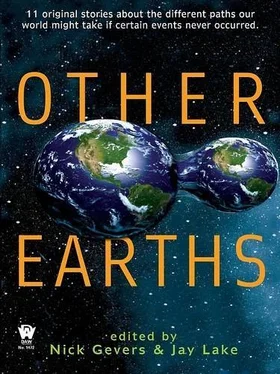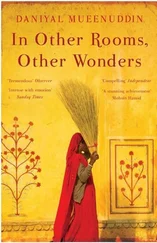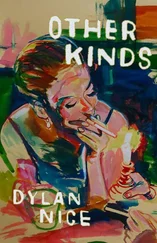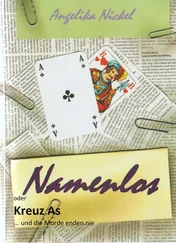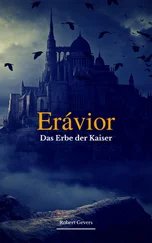I was heading back to the hotel, passing through the market when a mural painted on a noodle stall caught my eye. Abstract in form, a yellowish white mass of cells or chambers, spreading over the front and both sides of the stall—though crudely rendered, I had the idea that it was the depiction of microscopic life, one of those multicelled monstrosities that you become overly familiar with in Biology 101. It was such an oddity (most of the stalls were unadorned, a handful decorated with religious iconography), I stopped to look and immediately drew a gathering of young men, curious to see what had made me curious and taking the opportunity to offer themselves as guides, procurers, and so forth. The stallkeeper, an elderly Laotian man, grew annoyed with these loiterers, but I gave him a handful of Cambodian riels, enough to purchase noodles for my new pals, and asked (through the agency of an interpreter—one of the men spoke English) what the mural represented.
“He don’t know,” said the interpreter. “He say it make peaceful to look at. It make him think of Nirvana. You know Nirvana?”
“Just their first couple of albums,” I said. “Ask him who painted it.”
This question stimulated a brief exchange, and the interpreter reported that the artist had been an American. Big like me. More hair. A bad man. I asked him to inquire in what way the man had been bad, but the stallkeeper would only say (or the interpreter could only manage to interpret) that the man was “very bad.” I had only skimmed the last half of The Tea Forest , but I seemed to recall a mention of a creature like that depicted by the mural, and I suspected that the mural and the bad man who had created it might be evidence supporting Cradle Two’s theories.
That afternoon I staked out a table in the Sekong’s bar and was amazed by how many women volunteered for my inspection. Two balked at the sexual aspects of the position, and others were merely curious; but eleven were serious applicants, willing and, in some cases, eager to trade their favors for a boat ride and whatever experiences it might afford them. I rejected all but four out of hand for being too young or insufficiently attractive. The first day’s interviews yielded one maybe, a thirty-four-year-old Swedish school-teacher who was making her way around the world and had been traveling for almost five years; but she seemed to be looking for a place to rest, and rest was the last thing on my mind.
The bar was a pleasant enough space—walls of split, lacquered bamboo decorated with travel posters, Cambodian pop flowing from hidden speakers, and a river view through screen windows. A standing floor fan buzzed and whirred in one corner, yet it was so humid that the chair stuck to my back, and the smells drifting up from the water grew less enticing as the hours wore on. Late on the second day, I was almost ready to give up, when a slender, long-legged woman with dyed black hair (self-barbered, apparently, into a ragged pageboy cut), camo parachute pants, and an oft-laundered Olivia Tremor Control T-shirt approached the bar. She unshouldered her backpack and spoke to the bartender. I signaled to him that she passed muster. He pointed me out, and she came toward my table but pulled up short a couple of feet away.
“Oh, gosh!” she said. “You’re Thomas Cradle, aren’t you?”
Flattered at being recognized, I said that I was.
“This is fantastic!” She came forward again, dragging the backpack. “I shall have to tell my old boyfriend. He’s a devoted fan of yours, and he’ll be terribly impressed. Of course, that would make it necessary to speak with him again, wouldn’t it?”
She was more interesting-looking than pretty, yet pretty enough, with lively topaz eyes and one of those superprecise British accents that linger over each and every syllable, delicately tonguing the consonants, as if giving the language a blowjob.
“It’s hellish outside,” she said. “I must have a cold drink. Would you care for something?”
Her face, which I’d initially thought too young, mistaking her for a gangly teenager, had a waiflike quality; a white scar over one eyebrow and small indentations along her jaw, perhaps resulting from adolescent acne, added a decade to my estimate.
“I’ll take a Green Star, thanks,” I said. “No ice.”
“Gin for me. Tons of ice.” Her mouth, bracketed when she smiled by finely etched lines, was extraordinarily wide and expressive, appearing to have an extra hinge that enabled her crooked grin. “I’ll just fetch them, shall I?”
She brought the drinks, had a sip, closed her eyes, and sighed. Then she extended a hand, shook mine, and said, “I’m Lucy McQuillen, and I loved your last book. At least I think it’s your last.” She frowned. “Didn’t I hear that you’d stopped writing …or were giving it up or something? Not that your presence in Cambodia would refute that in any way.”
“I have got a new novel coming out next spring,” I said.
“Well, if it’s as good as the last, you’ll have my ten quid.”
“The critics will probably say it’s exactly the same as the last.”
We teetered on the brink of an awkward silence, and then she said, “Shall I tell you about myself? Would that be helpful?”
“That’s why I’m here.”
“Okay. I’m thirty-one …thirty-two next month, actually. I’ve lived in London all my life. I graduated from the Chelsea School of Design and worked at a firm in the city for a while. Five years ago I started my own firm, specializing in urban landscape design. We were doing spectacularly well for a new business …”
A foursome of prosperous-looking Cambodian men entered the bar, laughing and talking; they acknowledged us, inclining their heads and pressing their hands together in a prayerful gesture, a gesture that Lucy returned, and they took seats at a table against the back wall.
“To put it succinctly,” Lucy went on, “I’m a victim of multiculturalism. My East Indian accountant stole from me, quite a large sum, and fled to India. I couldn’t recover. It was an absolute disaster. I’m afraid I was a mess for some time thereafter. I had a little money left in personal accounts, and I started out for India, planning some pitiful revenge. I’m not certain what I had in mind. Some sort of Kaliesque scenario, I suppose. Gobbets of blood. His wife screaming in horror. Of course, I didn’t go through with it. I bypassed India completely, and I’ve been bumming around Southeast Asia for a couple of years. My money’s running low, and, to be frank, this voyage would extend my trip and give me the time and leisure to write a new business plan.”
“You must be good at what you do,” I said. “To be so successful at such a young age.”
“I’ve won awards,” she said, grinning broadly.
“I would have thought, then, you could have found investors to bail you out.”
“As I said, I was a mess. Certifiably a mess. Once they noticed, investors wouldn’t touch me. I’ve calmed down a great deal since, and I’m ready to have at it again.”
She fit into the “too eager” category, yet I found her appealing. The Cambodian men burst into applause, celebrating something one of them had done or said. The light was fading on the river, the far bank darkened by cloud shadow. I asked Lucy if she understood the requirements of the position.
“Your sign was somewhat vague,” she said. “I may be misreading it, but I assume ‘companion’ is another word for girlfriend?”
“That’s right.”
“May I ask a question?”
“Go for it.”
“Surely a man of your accomplishment must have a number of admirers. You’re not bad looking, and you obviously have money. I don’t understand why you would be in the market.”
Читать дальше
